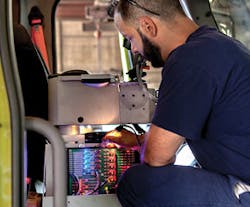For nearly 70 years, Equipment Service of Hartford, Connecticut, has provided snowplow truck upfitting and truck repair services for customers in Connecticut, western Massachusetts and parts of Rhode Island.
For most of those decades, Equipment Service had the local market to itself. Although profitability waxed and waned like the weather, it was generally a healthy business.
Then, in the 1990s, a number of competitors sprang up that siphoned off business and left the company with often-negative numbers. Even when Freightliner purchased the company in 1999, business didn’t immediately turn around.
By 2010, Equipment Service was upfitting only about 20 snowplow trucks a year and struggling to generate black ink on a consistent basis.
In 2011, Equipment Service hired Kevin Dinsmoor as the new service manager. Dinsmoor is an ASE master certified technician with 20 years of experience running a large independent truck and auto repair facility. In just over four years, he and his team of 15 employees have tripled the annual number of snowplow truck upfits. Equipment Service’s goal is to upfit 100 trucks each year.
Equipment Service and Dinsmoor accomplished the turnaround in large part by developing a set of best practices that apply to the entire process—from receiving an order for a new snowplow truck all the way through delivery to the customer. The goal of each practice is to build the best possible truck for each customer while increasing company profitability. As a result, Dinsmoor and his team have generated repeat business that, in turn, continues to fuel Equipment Service’s growth.
Equipment Service is heavily involved in truck service. The company has a second shop that does truck repair, complete rebuilds and preventative maintenance. Snowplow trucks, however, dominate the company’s upfits.
“The core of our business is assembling snowplow trucks,” Dinsmoor says. “Those account for about 80% of our business.”
Other major product lines include regular dump trucks, hook lifts, and roll-offs. Like other truck equipment distributors who are heavily involved in snowplow sales, the business can be difficult to predict.
“Weather plays such a role in our business,” Dinsmoor says. “The large amount of snow that fell last year has helped to drive orders this year as cities and towns seek to update their snow removal fleets.”
Many factors have gone into Equipment Service’s success over the past four years, but one overriding reason stands out.
“We have a keen sense of attention to the customer,” Dinsmoor says. “We always focus on building a better truck, rather than trying to increase profits by giving the customer a lower quality product. The result has been that after we build the first truck for a customer, the business just keeps coming back. A lot of times, the municipal jobs don’t have a lot of margin in them, so our competitors will ‘go cheap’ everywhere they can. That doesn’t generate repeat business for them, but repeat business is what is helping to fuel our growth.”
Best practices
Equipment Service has found that spelling out what needs to be done and communicating clearly to the shop goes a long way toward moving trucks through the shop and getting them built correctly. Here are some of the ways the company does that:
Communication. “The most important thing is good communication among all the departments within your facility, letting everyone know what jobs are here and which ones are coming,” Dinsmoor says. “That allows us to order all of the equipment and have it at the facility before the chassis arrives. That way, when the chassis gets here, we’re not waiting for anything; all the materials are here. That factor alone can save 90 days. A lot of our competitors don’t order any material until the chassis arrives and, as a result, the chassis sits outside for eight weeks.”
Communication with vendors is also important.
“One way we’ve improved efficiency is to have clear communication with the chassis supplier, and we’ll communicate up front with them as to what we need on our chassis. For example, we can get snowplow lights prewired and trailing brakes wires already run in the truck. If you have that communication with your chassis supplier before the truck is built, you can save yourself a lot of time. Otherwise, if a chassis shows up and there’s a fuel tank right where you need to install a hydraulic valve, your productivity is destroyed.”
Partnering with snow and ice control products vendors –The profitability of upfitting a new snowplow truck is based on the cost of equipment installed and the labor time it takes to move a truck in and out of the shop. Dinsmoor and his team typically take 45 to 60 days to build a new snowplow truck once the chassis arrives. Without that advance planning, that same truck could easily spend 120 to 180 days sitting in the yard waiting for parts and equipment.
Equipment Service also finds it advantageous to develop strong relationships with key suppliers, rather than shopping around. Since hiring Dinsmoor, for example, Equipment Service has relied on Cirus Controls of Minneapolis, Minnesota, for 98% of its snow and ice control systems. The other two percent is built in-house.
“Easy-to-install and user-friendly products, short lead time delivery, orders that ship on time and with everything we ordered, competitive prices, technical support, new products, field support. I can call my regional sales manager almost 24/7,” Dinsmoor says.
But the relationship works both ways. Equipment Service also helped Cirus Controls develop the company’s PowerSmart control system.
“We showed Cirus what we were doing with our own junction panel that we worked up in the shop. Brill took that basic idea back to Minnesota and Cirus transformed it into the new PowerSmart, and now we’re putting it in every truck,” Dinsmoor says.
Employee organization, training and retention – Getting the hardware right is one side of the equation, but the other involves the employees who do the work. “Another one of our best practices is that we build all our trucks in teams of two technicians. We don’t do an assembly line style. Some places do, but I think some things get lost in the shuffle on an assembly line. So we do teams of two and separate the jobs between in-cab electronics and all the iron on the chassis. Each team has one guy who is proficient in that side of it. So as they work together as a team, within two weeks’ time, the body is married to the chassis and it’s off to the paint shop.”
Dinsmoor describes finding good employees as almost impossible, and once one is found, you have to hold on to them. “Most of the time we look for people with skills in welding because there is so much welding to do. And then we train them on the job for the rest of the skills. Unfortunately, there is no school for the type of work we do, because it’s such a mixed batch of skills. Equipment Service has done an excellent job of retaining good workers by offering annual salary increases and employee benefits.”
“For example, we offer a 10 percent 401K match, paid vacation and medical insurance. We provide technicians with up-to-date equipment and let them get out at 3:30 p.m. every day. They like that. I try to keep a relaxed environment and I’m really not hard on employees because the job is hard enough. I encourage them all to be free thinkers, so it’s a pretty good place to work. With teams of two, the techs take more ownership of the product. It’s great to hear them say ‘that’s my truck right there.’ They’re proud of what leaves here,” Dinsmoor says.
Devil is in the detailing – In the end, the commitment to exceeding customer expectations comes down to the first impression the customer gets when the truck is delivered. “One thing Equipment Service does is that once we’re done with the truck, we send it out to get detailed top to bottom, so when the dealer gets the truck, it’s spotless. Some upfitters leave pieces of electric wire on the floor, footprints, and dirt and grime everywhere. Our snowplow trucks are spotless and ready for the road when they are delivered to the customer. It costs us a little more money, but I think it saves us more than it costs us.”
Advice to shop managers. “To be better at their job, workers all need to learn electronics and hydraulics. In my experience, everybody falls short in these areas, and it causes a lot of inefficiencies or rework. All shop workers can cut, weld and grind and do the basic things, but if they can learn electrical and hydraulic functions, they would all definitely excel. The upper-level upfitters are the guys who know hydraulics and electronics,” Dinsmoor says.
Dinsmoor’s focus on exceeding customer expectations and best practices has laid the groundwork for Equipment Service’s return to profitability. Equipment Service has been in business for nearly 70 years, and if Dinsmoor has anything to say about it, it will be in business for 70 more. ♦
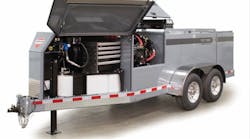
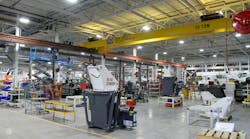

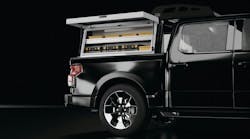
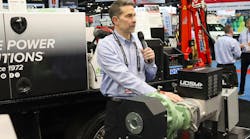
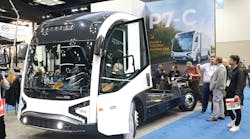
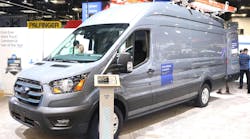
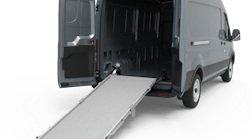

![Systematically reducing installation times has brought increased profits to Equipment Service, Hartford CT. Service manager Kevin Dinsmoor [lower left] and staff have been reducing shop throughput times. Systematically reducing installation times has brought increased profits to Equipment Service, Hartford CT. Service manager Kevin Dinsmoor [lower left] and staff have been reducing shop throughput times.](https://img.trailer-bodybuilders.com/files/base/ebm/trailerbodybuilders/image/2019/04/trailerbodybuilders_4188_equipment_service_0.png?auto=format,compress&fit=crop&q=45&h=139&height=139&w=250&width=250)
